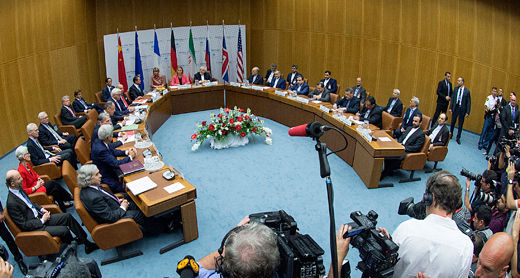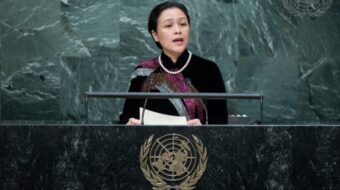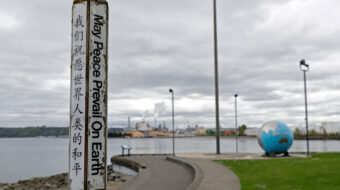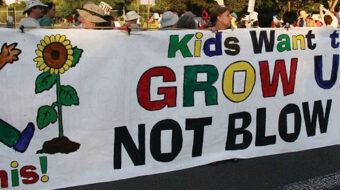
Iran struck a historic nuclear deal Sunday with the United States and five other world powers — U.K., Russia, China, Germany and France — in the most significant development between Washington and Tehran in more than three decades of estrangement between the two nations.
The agreement commits Iran to curb its nuclear activities in exchange for limited and gradual sanctions relief. It builds on the momentum of the dialogue opened during September’s annual U.N. gathering, which included a 15-minute phone conversation between President and Iran’s new president, Hassan Rouhani.
It marks a milestone between the two countries, which broke diplomatic ties 34 years ago when Iran’s Islamic revolution climaxed in the storming of the U.S. Embassy in Tehran. Since then, relations between the two countries have been frigid to hostile — until the recent outreach between the two presidents.
Obama hailed the deal as putting “substantial limitations” on a nuclear program that the United States and its allies fear could be turned to nuclear weapons use.
“While today’s announcement is just a first step, it achieves a great deal,” Obama said. “For the first time in nearly a decade, we have halted the progress of the Iranian nuclear program, and key parts of the program will be rolled back.”
“Agreement in Geneva,” tweeted U.S. Secretary of State John Kerry, who flew to Geneva on Saturday, joining foreign ministers of the nations negotiating with Iran to push the deal through. “First step makes world safer. More work now.”
Israel Prime Minister Benjamin Netanyahu has loudly criticized the agreement, saying the international community is giving up too much to Iran, which it believes will retain the ability to produce a nuclear weapon and threaten Israel.
A White House statement called the nuclear agreement an “initial, six-month step.”
Specifically, the statement said the deal limits Iran’s existing stockpiles of enriched uranium, which can be turned into the fissile core of nuclear arms.
The statement also said the accord curbs the number and capabilities of the centrifuges used to enrich and limits Iran ability to “produce weapons-grade uranium” from a reactor in the advanced stages of construction. The statement also said Iran’s nuclear program will be subject to “increased transparency and intrusive monitoring.”
“Taken together, these first step measures will help prevent Iran from using the cover of negotiations to continue advancing its nuclear program as we seek to negotiate a long-term, comprehensive solution that addresses all of the international community’s concerns,” said the statement.
In return, the statement promised “limited, temporary, targeted, and reversible (sanctions) relief” to Iran, noting that “the key oil, banking, and financial sanctions architecture, remains in place.”
It said any limited sanctions relief will be revoked and new penalties enacted if Iran fails to meet its commitments.’
Asked if there was a deal, French Foreign Minister Laurent Fabius said “Yes” and gave a thumbs up sign.
The goal had been to hammer out an agreement to freeze Iran’s nuclear program for six months, while offering the Iranians limited relief from crippling economic sanctions. If the interim deal holds, the parties will negotiate final-stage agreements to ensure Iran does not build nuclear weapons.
The deal came after the personal intervention by Secretary of State John Kerry and other foreign ministers whose presence had raised hopes for a breakthrough.
Diplomats refused to spell out details of the talks, which dragged on past midnight and into early Sunday.
Photo: Overview of a last plenary session of the talks on the Iranian nuclear program that is being held at the U.N. building in Vienna, July 14. (Joe Klamar/Pool Photo via AP)

MOST POPULAR TODAY

Zionist organizations leading campaign to stop ceasefire resolutions in D.C. area

High Court essentially bans demonstrations, freedom of assembly in Deep South


Afghanistan’s socialist years: The promising future killed off by U.S. imperialism

Communist Karol Cariola elected president of Chile’s legislature






Comments